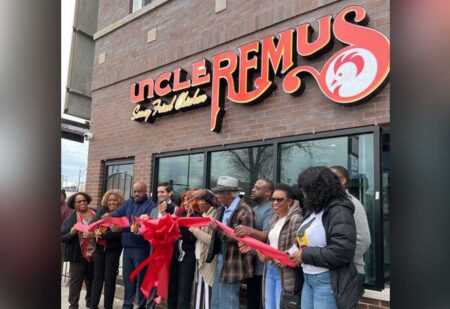Nakili, an eastern black rhinoceros at the Brookfield Zoo, was euthanized Wednesday, the zoo said.
The 33-year-old rhinoceros was the oldest male of his species living in an accredited North American zoo. He had been recently diagnosed with kidney disease that was no longer treatable, the Brookfield Zoo said Wednesday in announcing his death.
Millions of guests have seen the nearly 3,000-pound rhinoceros since he arrived in Brookfield as a 4-year-old. Nakili helped visitors learn about his fellow leathery-skinned eastern black rhinoceroses. More importantly, he “conveyed the plight the critically endangered species faces in its native habitat of Africa,” the zoo said.
An estimated 740 eastern black rhinoceroses remain in Africa. The endangered species is threatened by poaching for its horn.
Afternoon Briefing
Daily
Chicago Tribune editors’ top story picks, delivered to your inbox each afternoon.
Nakili would tilt his massive, horned head when he wanted something and vocalize to get attention, the Brookfield Zoo’s animal keepers recalled.
“He definitely leaves a big, lovable hole in the hearts of those who cared for him,” the zoo said in the announcement.
The rhinoceros was a favorite among zoo staff, volunteers and visitors, said Joan Daniels, senior director of hoofed mammal care and conservation.
“He had a great disposition and voluntarily participated in his training and husbandry sessions. He also participated in up-close experiences with zoo guests, who hopefully were inspired by him to care more about his species and the natural world,” Daniels said.
Staff had tried to get the animal to drink more water, administered medicine and modified his diet in an effort to make Nakili comfortable after detecting progressive kidney disease in August 2022. But recent testing showed that care was no longer feasible.
Zoo staff decided to euthanize him “before his comfort and quality of life began to decline,” according to the statement.
Nakili has one living offspring, Kianga, who was born at the Brookfield Zoo in 2003 and no longer lives there, the zoo said.







